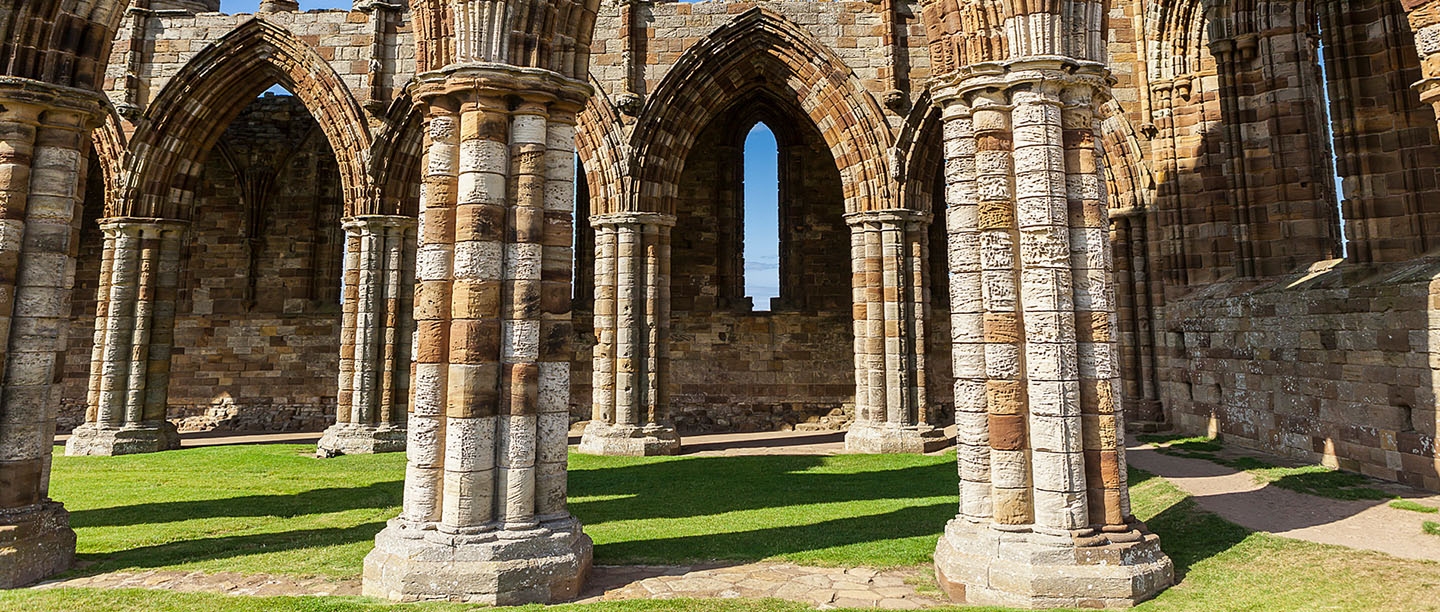Discover Glorious Gothic ruins
For nearly 700 years, the splendid 13th-century Gothic abbey has towered high above Whitby. Today you can take in wonderful views of the coastline and town while you explore the abbey’s extensive remains.
First founded in about 657 by King Oswy of Northumbria, Whitby Abbey was refounded after the Norman Conquest. It remained an important centre of religious life until it was suppressed in 1539. Centuries of wear, weather and war have left their mark on the ruins. Visit, and you’ll find many layers of history to explore and unravel.
Take a walk through History
When you visit Whitby, you’ll be following in the footsteps of many influential, creative people. Over the centuries, the abbey’s haunting ruins have inspired religious leaders, artists, writers and poets.
Among them was St Hild, a pioneering abbess. She hosted the 7th century Synod of Whitby at the abbey, where church leaders met and decided the English Church should follow Roman rather than Celtic practices (link Celtic connections article). Legend has it that St Hild chased snakes away from the abbey, and that her righteous rage turned them into stone.
Explore the Visitor Centre & Museum
The visitor centre at Whitby Abbey is housed in a 17th-century mansion.
Inside you’ll find a museum that tells the 3,000-year-long story of the abbey with the help of objects like Anglo-Saxon crosses, medieval manuscripts and even a rare, signed copy of Bram Stoker’s novel ‘Dracula’.
Have some family fun
There’s plenty for families to do at Whitby abbey.
Roam the wide-open spaces of the abbey grounds, enjoy a relaxing picnic and play hide and seek among the ruins.
Family activities and regular special events take place during the school holidays, including Easter quests and Dracula performances.
Discover magical creatures
Looking for an adventure with your little ones? Uncover English folklore with our Folktale Creature Trails, where children can discover magical creatures from English myths and legends.
Meet six unique creatures as you explore the site, and earn a special certificate marking your achievement when you complete the trail. There are some captivating audio stories to enjoy when you get home too.
The trail is included in the entry price. Find more sites taking part in the Folklore Creature Trail.
